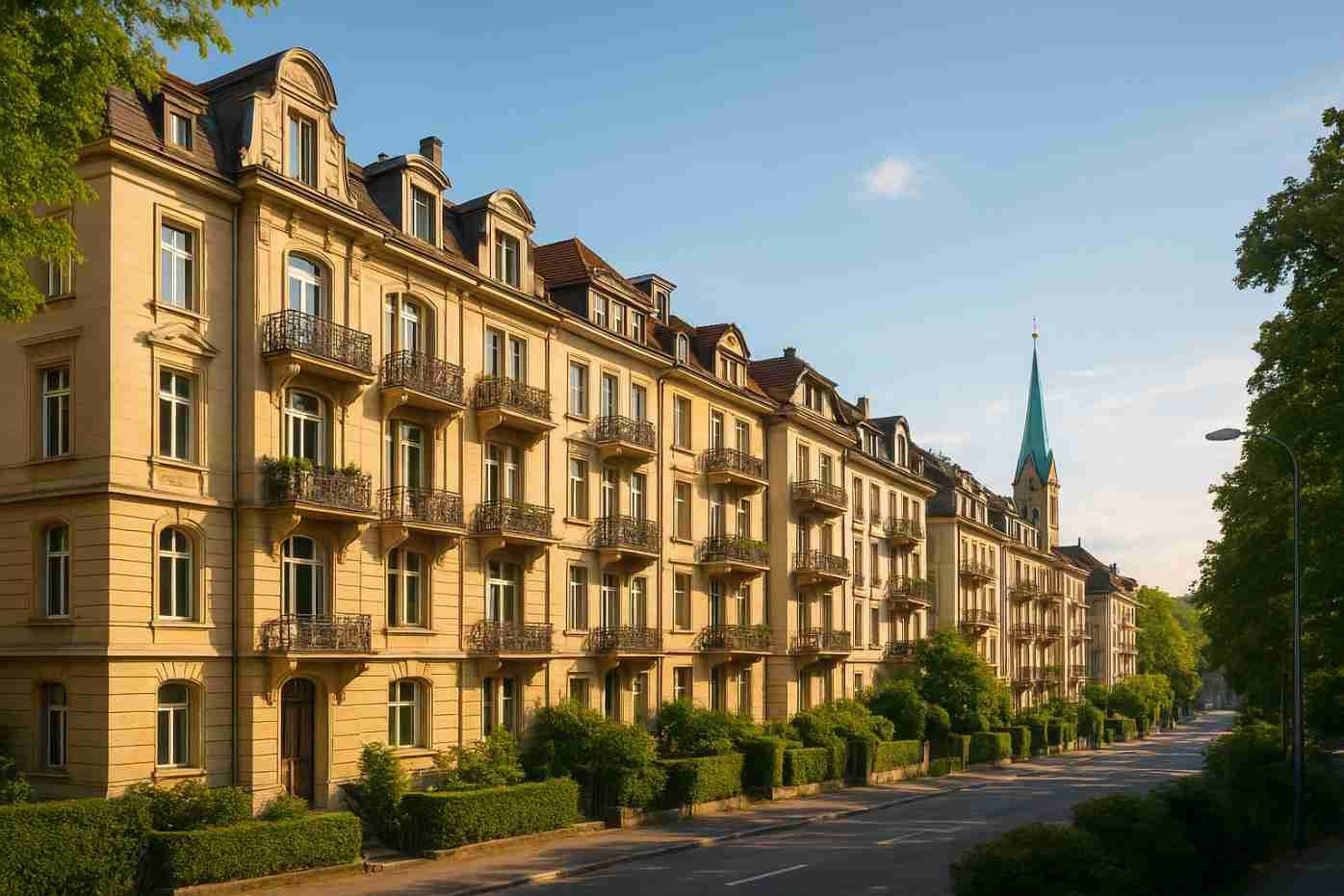If you’re anything like me when I first started to explore life in Switzerland, then the question of citizenship must have come up fairly soon. Can I really become Swiss one day? It’s about more than just the passport (though that imposing red booklet sure helps). It’s about stability, security, and joining a country known for its order, its freedoms, and its quality of life.
Okay, so I will be the first to admit that Switzerland doesn’t have some special citizenship by-investment panacea that some countries offer. But here is the neat part! There are clever, strategic ways to invest in Switzerland that can ultimately pave your path to citizenship. I spent years researching and talking to people who have done this! Some made it, some got stuck. What I’m sharing here is a real, no-nonsense guide based on what works and what doesn’t.
I’ll explain how it actually functions, what to watch out for, and even some of the cantons that go out of their way to make it easier. My goal? To make things easier on you, because I’m trying to give you the most solid advice I can, the kind I wish I’d had.
 Quick Answer: Can You Get Swiss Citizenship by Investment?
Quick Answer: Can You Get Swiss Citizenship by Investment?
Let me lay the quick, straight answer on you right here: There is no such thing as a straight citizenship-by-investment program in Switzerland like in the case of Malta, the West Indies island of St. Kitts. You can’t buy your way to a Swiss passport.
But don’t despair, because here’s where the true opportunity comes in. You can’t buy citizenship as such, but you can invest your way to residency and, eventually, potentially to Swiss citizenship with the right conditions if you hang on long enough in the country.
There are 2 primary avenues most people look at:
1. Agreement on lump-sum taxation (for wealthy individuals who do not work in Switzerland)
2. Business investment/entrepreneurship – (if you are playing an active role in the Swiss economy).
Both demand commitment and long-term thinking. This is a marathon, not a sprint. If you maintain legal residency for at least roughly a decade (possibly less, depending on your circumstances), become mixed up in the community, and can demonstrate you have language and basic civic knowledge, naturalization is an option for you.
I have personally met people who took those paths. One retired investor who had settled in Ticino under the lump-sum tax system and who became a citizen after years of community involvement. Another launched a tech start-up in Zug, creating local jobs, and worked his way to permanent residence.
So, yes, you can buy your way into Swiss citizenship. It simply requires an appropriate approach, patience, and a sincere desire to be an active part of life in Switzerland.
Option 1: Lump-Sum Taxation Route
This is one of the most talked-about routes for wealthy individuals looking to live in Switzerland, and it’s honestly the closest thing to investment-based residency the country offers.
I first learned about the lump-sum taxation agreement through a friend from the UK who was semi-retired and looking for a peaceful, high-quality lifestyle. He didn’t want to work in Switzerland but was happy to contribute financially, and this option fit perfectly.
What is the Lump-Sum Taxation Route?
Under this system, you don’t pay taxes on your global income, like you would in most countries. Instead, you pay a pre-agreed, fixed amount of tax each year to the canton (region) where you live. This is calculated based on your living expenses, not income or wealth.
- Minimum starts around CHF 150,000/year, but can be significantly higher depending on the canton.
- You cannot work or conduct business in Switzerland under this scheme.
- It’s only available to non-EU/EFTA nationals who are not already employed or active in Switzerland.
Cantons That Offer It
Not all cantons participate. Popular ones include:
- Vaud
- Valais
- Fribourg
- Ticino
- Geneva (for very high-net-worth individuals)
Each canton negotiates independently, so the final tax amount and conditions can vary a lot.
Pros:
- Simple, predictable taxation
- Discreet and private process
- Ideal for retirees or financially independent individuals
- High standard of living in a peaceful, safe country
Cons:
- Expensive, definitely not for the average investor
- No work is allowed in Switzerland.
- Citizenship still takes 10+ years, with full integration required (language, community, etc.)
My Personal Advice
If you’re already financially comfortable and looking for a quiet, secure base in Europe, this could be a great option. But it’s not passive. Swiss authorities will expect you to genuinely integrate, not just park your money here.
I’ve seen people succeed when they join local clubs, learn the language (at least basic German, French, or Italian), and participate in community life. Citizenship is earned here, not bought.
Option 2: Business Investment Route
If you’re the kind of person who enjoys building, creating and engaging in the work you’re doing, then this option may be perfect for you. With the business investment route, instead of going the route of lump-sum tax, you can actually be an active part owner in a Swiss company and consequently, establish a long-term foundation toward residency and (eventually) citizenship.
I’ve spoken with a number of entrepreneurs who’ve taken this route: some opened tech startups in Zurich, others started small manufacturing firms in the Bernese countryside. What was common to all of them? DEDICATION, patience and working close to home.
How the Business Investment Route Operates
If foreign entrepreneurs bring value, they are welcome in Switzerland. Here’s the typical process:
1. Set up or invest in a Swiss Company
You’ll need to:
- Incorporate a Swiss legal entity (generally either a GmbH or AG)
- Minimum investment (CHF 20,000+ for GmbH, CHF 100,000+ for AG)
- Demonstrate that the business will produce a positive economic impact locally (jobs, taxes, innovation).
2. How to apply for a Residence Permit (B Permit)
If your business is accepted, you get a resident permit to:
- Live and work in Switzerland
- Get involved in the day-to-day of your business.
- Bring eligible family members.
3. Run the Business Successfully
This is not a paper company trajectory. Swiss authorities will check:
- Is your business actually open?
- Are you creating local jobs?
- Contribute to the economy or not?
4. Apply for Citizenship: After 10–12 Years
If you’ve been living continuously, with integration (language, culture), and a clean legal record, you can apply for naturalization.
Pro Tips (from Real Experiences)
Pick a canton that is open to business immigration (ie, Zug, Schwyz, Vaud).
Be hands-on – The Swiss are suspicious about entrepreneurs who just sit as shareholders.
Learn the local language – it’s not optional if you want citizenship.
Employ a local business consultant or immigration attorney. The bureaucracy is slippery, and missteps are expensive.
This is perfect for people who want to make a life, not just a status purchase.
 Key Requirements & What to Expect
Key Requirements & What to Expect
One thing you’ll quickly learn about Switzerland it’s not just about how much money you bring in. It’s about how well you fit in. Swiss citizenship is rooted in community, culture, and contribution. Whether you take the lump-sum taxation route or start a business, the citizenship requirements stay the same once you’re a resident.
Here’s what you need to know:
Residency Duration
- Standard requirement: 10 years of continuous legal residency
- Some cases, like marrying a Swiss citizen or being raised in Switzerland, allow for easier naturalization. But for most investors, the process takes 10 years.
- At least 3 out of the last 5 years must be spent physically living in Switzerland right before you apply.
Language Requirements
- You’ll need to prove language proficiency:
- A2 level in speaking
- A1 level in writing
- The specific language depends on your canton (German, French, Italian, or Romansh)
Integration & Community Involvement
- Show that you understand and respect Swiss laws, customs, and values
- Engage locally, join clubs, support local causes, and build relationships
- Authorities may interview you and even ask neighbors for feedback (yes, really!)
What to Expect (My Advice)
This is not a checklist you tick once! It’s a process of becoming part of the community. The Swiss value trust, reliability, and modesty. If you bring a genuine desire to live and contribute, you’ll be welcomed.
My Personal Insight & Real-Life Examples
I have lived in Switzerland long enough to know that while the rules are black and white, the path to citizenship is all shades of grey. It’s not a matter of checking off boxes it’s about where you fit in, and honestly? That can be both exciting and humbling.
I recall meeting a couple from South Africa who made their way to Valais via the lump-sum tax. They weren’t flashy or gaming the system they were just seeking a quiet life, close to the mountains. What stood out? They got involved in a local hiking club and took night classes in French, and eventually they were invited out in the community. When they were due to apply for citizenship, in fact, their neighbours vouched for them. That’s Switzerland for you.
Another one, a friend of mine from India, opened a boutique consulting shop in Zug. It was challenging at firs,t paperwork, staffing with locals,and building trust. But as his business expanded, and he began mentoring local startups, he came to be a recognizable figure in the community. Eight years later he was given Swiss citizenship and not just for being an investor, but for enriching his community.
Here is what I have learned from my own experience: Switzerland responds to those who respect its values moderation, consistency, and participation. You don’t need to be a different person, but you do need to show up and participate. Whether it’s investing in a company or deeply knowing people in your village that’s what really matters.
So if you’re thinking long term, bring the attitude of joining, not merely settling.
Pros & Cons + Best Cantons
You’ve likely already noticed by now that all this about becoming a Swiss citizen by investment is no shortcut! It’s a formal, long-term investment. But with the right person, it can definitely be worth it. Here’s a brief comparison to get the gears turning:
Pros
- Even more ways of life, along with world-class health and education centres
- Sovereign and highly respected passport in the world
- Investment-friendly economy, particularly in cantons such as Zug and Schwyz
- Chance to construct a permanent abode in one of the world’s most liveable nations
Cons
- Nothing as straightforward as a “citizenship-for-cash” program, time and integration are non-negotiable.
- High standard of living, especially in cities like Zurich or Geneva
- Bureaucracy is slow and different in each canton.
- It takes over 10 years to get citizenship, even with a heavy investment
Top Cantons to Consider
Here are some cantons renowned for their business-friendliness or at least more welcoming under the lump-sum tax system:
- Zug – Low tax, excellent start-up conditions, good for tech or finance
- Schwyz – business-friendly, under-regulated
- Vaud – Retrieved among pensioners for the capital option
- Ticino – Italian language and lifestyle, fair tax treaties.
- Valais – Quiet, beautiful, and open to international buyers
Each canton has its own rules – do some research or ask around locally before making your decision.
Step-by-Step Guide
If you’re really serious about getting Swiss citizenship by investment, here’s a clear, no-fluff road map to guide you on exactly what to do and in what order.
1: Decide Your Route
Choose between:
- Special Tax Treatment by Lump Sum (for the independent worker)
- Business Investing (for Entrepreneurs & Active Investors)
2: Choose the Right Canton
Research and select a canton that aligns with your goals (taxes, language, business opportunity, lifestyle)
3: Apply for Residency
- For lump-sum: agreement on the tax amount with the canton
- For work: start a business and apply for a residency permit
4: Integrate & Contribute
- Speak A2, Write A1 of the local language.
- Get involved in the community, this matters more than you think
5: Stay Committed Long-Term
- For at least 10 years in Switzerland
- Obey the laws, pay taxes, and have a clean record.
- Make relationships, it’s a massive thing in your application.
6: Apply for Citizenship
- Apply through your local commune, canton, and federal levels as soon as you are eligible.
- Get ready for the interviews and assessments.
It’s not just a passport you are buying you are building a life here. Succeed, and Switzerland will embrace you.
Let’s Talk – Your Swiss Journey Starts Here
If you’ve read this far, I also hope you feel more confident and knowledgeable about this route to Swiss citizenship via investment. I designed Swiss Sustain to be more than a website! It’s your own personal guide to living, investing, and succeeding in Switzerland.
Still have questions about which way to go? Not sure how to deal with cantonal regulations? Or do you just have something on your mind you want to share? Leave a comment below or send an email. I read this stuff and can help.
Sign up for more real-life stories like this inside your inbox. Subscribe we will use your email address only for sending you newsletters. Please refer to our Privacy Notice for details of your data protection rights.
Share this article with any friends who are contemplating life in Switzerland.
Fill out the form, @Swiss_Sustain will take care of you personally, answer any questions you have, or point you to the best resource!
At times, this journey can feel overwhelming! You may feel lost at times; however, you’re not alone. Let’s make your Swiss dream a reality step by step, the right way.














